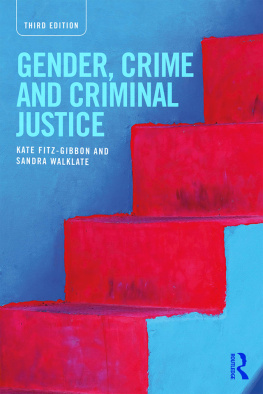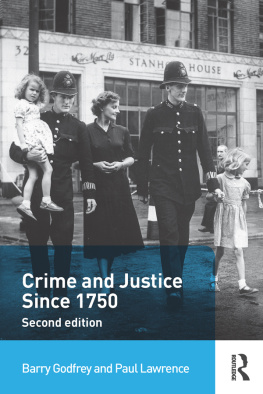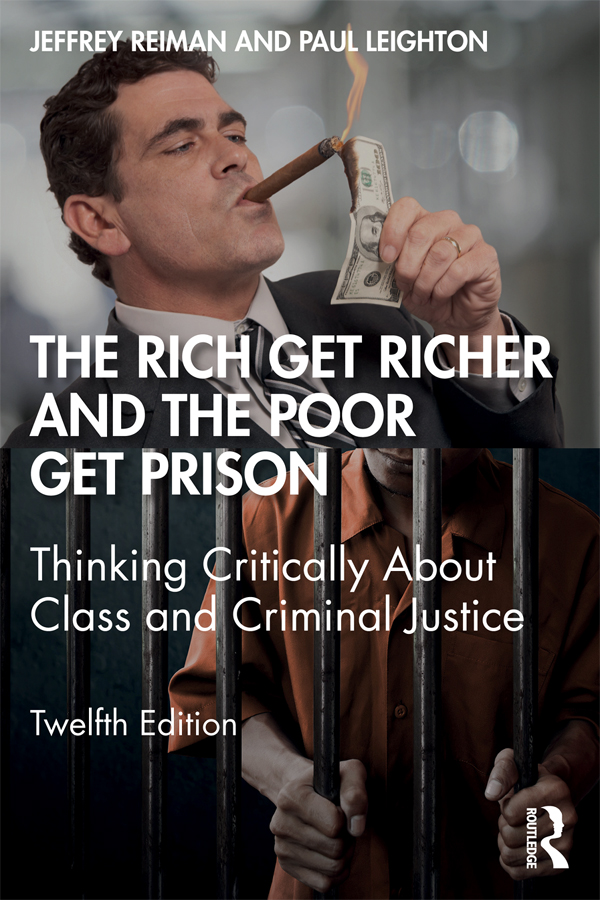Jeffrey Reiman - The Rich Get Richer and the Poor Get Prison: Thinking Critically About Class and Criminal Justice
Here you can read online Jeffrey Reiman - The Rich Get Richer and the Poor Get Prison: Thinking Critically About Class and Criminal Justice full text of the book (entire story) in english for free. Download pdf and epub, get meaning, cover and reviews about this ebook. year: 2020, publisher: Taylor and Francis, genre: Politics. Description of the work, (preface) as well as reviews are available. Best literature library LitArk.com created for fans of good reading and offers a wide selection of genres:
Romance novel
Science fiction
Adventure
Detective
Science
History
Home and family
Prose
Art
Politics
Computer
Non-fiction
Religion
Business
Children
Humor
Choose a favorite category and find really read worthwhile books. Enjoy immersion in the world of imagination, feel the emotions of the characters or learn something new for yourself, make an fascinating discovery.

- Book:The Rich Get Richer and the Poor Get Prison: Thinking Critically About Class and Criminal Justice
- Author:
- Publisher:Taylor and Francis
- Genre:
- Year:2020
- Rating:3 / 5
- Favourites:Add to favourites
- Your mark:
The Rich Get Richer and the Poor Get Prison: Thinking Critically About Class and Criminal Justice: summary, description and annotation
We offer to read an annotation, description, summary or preface (depends on what the author of the book "The Rich Get Richer and the Poor Get Prison: Thinking Critically About Class and Criminal Justice" wrote himself). If you haven't found the necessary information about the book — write in the comments, we will try to find it.
For 40 years, this classic text has taken the issue of economic inequality seriously and asked: Why are our prisons filled with the poor? Why arent the tools of the criminal justice system being used to protect Americans from predatory business practices and to punish well-off people who cause widespread harm?
This new edition continues to engage readers in important exercises of critical thinking: Why has the U.S. relied so heavily on tough crime policies despite evidence of their limited effectiveness, and how much of the decline in crime rates can be attributed to them? Why does the U.S. have such a high crime rate compared to other developed nations, and what could we do about it? Are the morally blameworthy harms of the rich and poor equally translated into criminal laws that protect the public from harms on the streets and harms from the suites? How much class bias is present in the criminal justice system both when the rich and poor engage in the same act, and when the rich use their leadership of corporations to perpetrate mass victimization?
The Rich Get Richer shows readers that much of what goes on in the criminal justice system violates citizens sense of basic fairness. It presents extensive evidence from mainstream data that the criminal justice system does not function in the way it says it does nor in the way that readers believe it should. The authors develop a theoretical perspective from which readers might understand these failures and evaluate them morallyand they to do it in a short text written in plain language.
Readers who are not convinced about the larger theoretical perspective will still have engaged in extensive critical thinking to identify their own taken-for-granted assumptions about crime and criminal justice, as well as uncover the effects of power on social practices. This engagement helps readers develop their own worldview.
New to this edition:
Jeffrey Reiman: author's other books
Who wrote The Rich Get Richer and the Poor Get Prison: Thinking Critically About Class and Criminal Justice? Find out the surname, the name of the author of the book and a list of all author's works by series.




